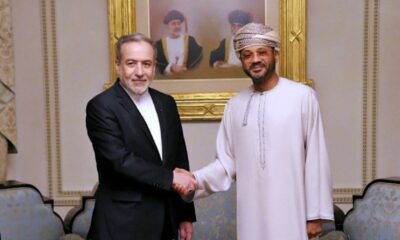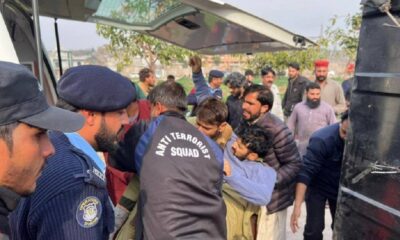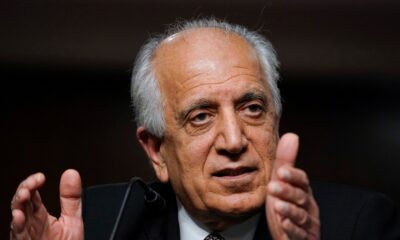Latest News
Blinken urges cooperation and unity in letter to Ghani
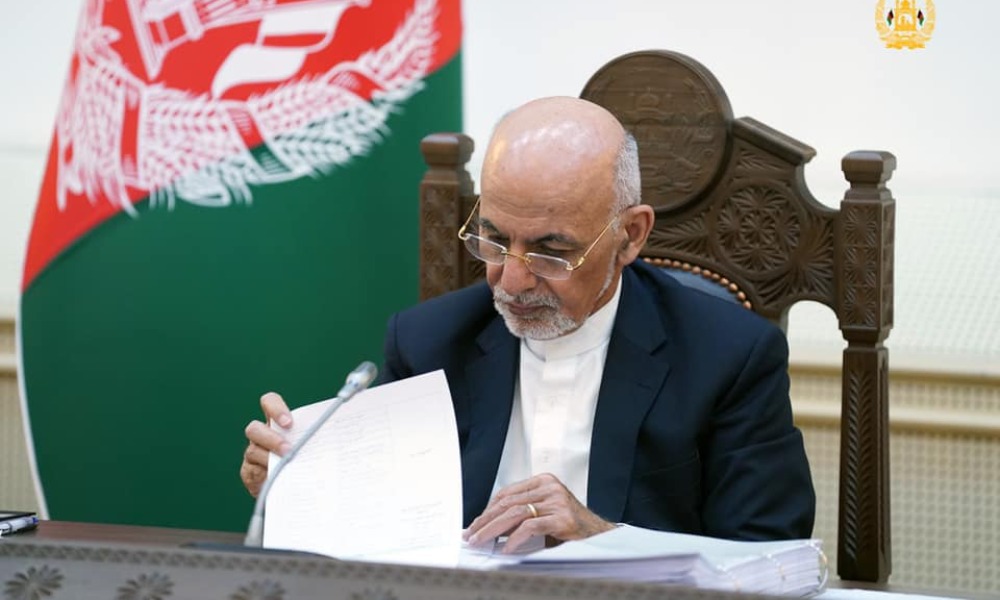
US Secretary of State Antony Blinken said he is concerned that a withdrawal of all American troops could impact the security situation in Afghanistan and lead to the Taliban making serious gains but also said the US does not intend to “dictate terms to the parties”.
In a letter to President Ashraf Ghani, of which Ariana News obtained a copy, Blinken said that proposals currently on the table reflect some of the ideas under consideration but “even with the continuation of financial assistance from the United States to your forces after an American military withdrawal, I am concerned that the security situation will worsen and that the Taliban could make rapid territorial gains.”
Blinken also called on Ghani to “positively consider” the proposal that US peace envoy Zalmay Khalilzad will share with him and that the Afghan president works with the Chairman of the High Council for National Reconciliation Abdullah Abdullah, former president Hamid Karzai and Adbul Rasul Sayyaf, an Afghan politician.
On this note, he said such a “group of four” would present a united front.
Blinken also stated that Washington intends to ask the United Nations to convene a meeting for Foreign Ministers and envoys from Russia, China, Pakistan, Iran, India and the US to discuss a unified approach to supporting peace in Afghanistan.
“It is my belief that these countries share an abiding common interest in a stable Afghanistan and must work together if we are to succeed.”
He said Khalilzad has been asked to prepare and share with Ghani and the Taliban leaders written proposals aimed at accelerating discussions on a negotiated settlement and ceasefire.
However, he pointed out that although Washington has “not yet completed our review of the way ahead, we have reached an initial conclusion that the best way to advance our shared interest is to do all we can to accelerate peace talks and to bring all parties into compliance with their commitments”.
He said the roadmap outlined for the peace process will enable the Republic and the Taliban to develop the foundational principles that will guide Afghanistan’s future constitutional and governing arrangements; a roadmap to a new and inclusive government; and the terms of a permanent and comprehensive ceasefire.
He said to Ghani: “I urge you to develop constructive positions on these written proposals to discuss with Ambassador Khalilzad.”
Blinken also stated that Washington will ask Turkey to host a senior-level meeting of both sides in the coming weeks to finalize a peace agreement.
“I urge you or your authoritative designees to join other representatives of the Islamic Republic in this meeting,” he said to Ghani.
Blinken did however say that Washington shares Ghani’s view that every effort must be made to reduce the violence in Afghanistan. He said these high levels of violence “are exacting an unacceptable toll on the Afghan people and deeply undermining efforts to achieve peace.”
“We have prepared a revised proposal for a 90-day Reduction-in-Violence, which is intended to prevent a Spring Offensive by the Taliban and to coincide with our diplomatic efforts to support a political settlement between the parties.
“I urge you to positively consider the proposal…” he said.
Blinken went on to state in his letter to Ghani that unity and inclusivity on the Republic’s side was essential for the “difficult work that lies ahead”.
“As you and your countrymen know all too well, disunity on the part of Afghan leaders proved disastrous in the early 1990s and must not be allowed to sabotage the opportunity before us,” he said in reference to the devastating civil war.
He said to Ghani that his “work together with Chairman Abdullah and your engagements with former President Karzai and professor Sayyaf show promise toward building a more united Afghan front for peace.
“I ask that you work together to further broaden this consultative group of four such that Afghans regard it as inclusive and credible; to build consensus on specific goals and objectives for a negotiation with the Taliban about governance, power-sharing and essential supporting principles; and to agree on overall tactics and public messaging that will demonstrate unity of effort and purpose.”
He then said: “We will strongly support all efforts taken to make this united front work.”
In conclusion, he told Ghani: “I am making this clear to you so that you understand the urgency of my tone regarding the collective work outlined in this letter.”
Transitional government proposed
The letter coincides with the emergence of Washington’s plan for a transitional government – which the Taliban confirmed Sunday.
In an interview with Ariana News, Taliban spokesman Mohammad Naeem said the plan was being considered by the Taliban’s leadership in Doha and that “a final decision has yet to be made in this regard.”
Naeem stated that the plan includes a transitional government, an Ankara, Turkey summit, and a ceasefire.
The Afghan government has also received US President Joe Biden’s proposed plan for the formation of a transitional government which would include the Taliban.
The plan consists of three key points; a principled guideline for the future of Afghanistan, a transitional government, and a permanent ceasefire.
According to a section of the plan that Ariana News read, a President of Afghanistan would be elected at the end of the transitional government period.
According to the plan, Islam will be considered the official religion of the country, and all Afghan citizens are granted immunity as “Afghanistan is a common home of all ethnicities and religions.”
A transitional government would consist of the following three main cornerstones:
The executive administration, including a president, deputies, ministers, and independent directorates
The legislature, which includes the Senate and Parliament, in which the Taliban will be represented and;
The judiciary, which would also include the Independent High Council of Islamic Jurisprudence and the Commission for Drafting a New Constitution.
According to the plan, the High Council of Islamic Jurisprudence would be composed of 15 members including seven Taliban members, seven members of the Afghan government, and a person would be chosen by the president of the government.
The council would be tasked to prepare Islamic guidance for social and cultural affairs.
Latest News
Islamic Emirate strongly condemns mosque bombing in Islamabad
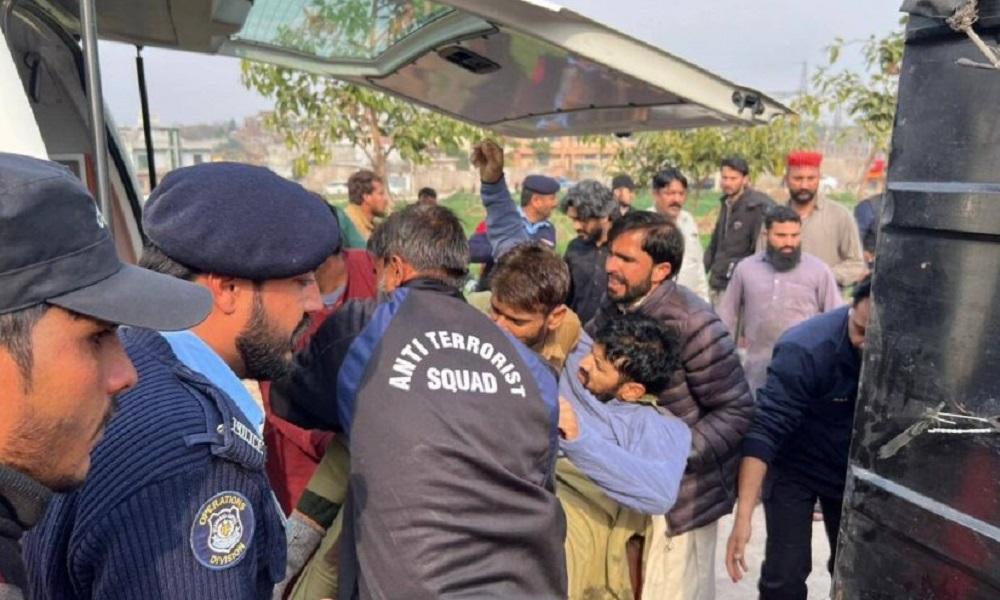
The Ministry of Foreign Affairs of the Islamic Emirate of Afghanistan has strongly condemned Friday’s suicide bombing at a Shi’ite mosque in Islamabad, the capital of Pakistan, which left 31 people dead and 179 others wounded.
Abdul Qahar Balkhi, spokesperson for the Ministry of Foreign Affairs, said in a statement that the Islamic Emirate considers such attacks—which violate the sanctity of religious rites and mosques and target worshippers and civilians—to be contrary to Islamic and human values.
The Islamic Emirate also expressed sympathy with the families of the victims and wished a speedy recovery to the wounded.
Latest News
Suicide bomber kills 31 in Shi’ite mosque in Pakistan’s capital
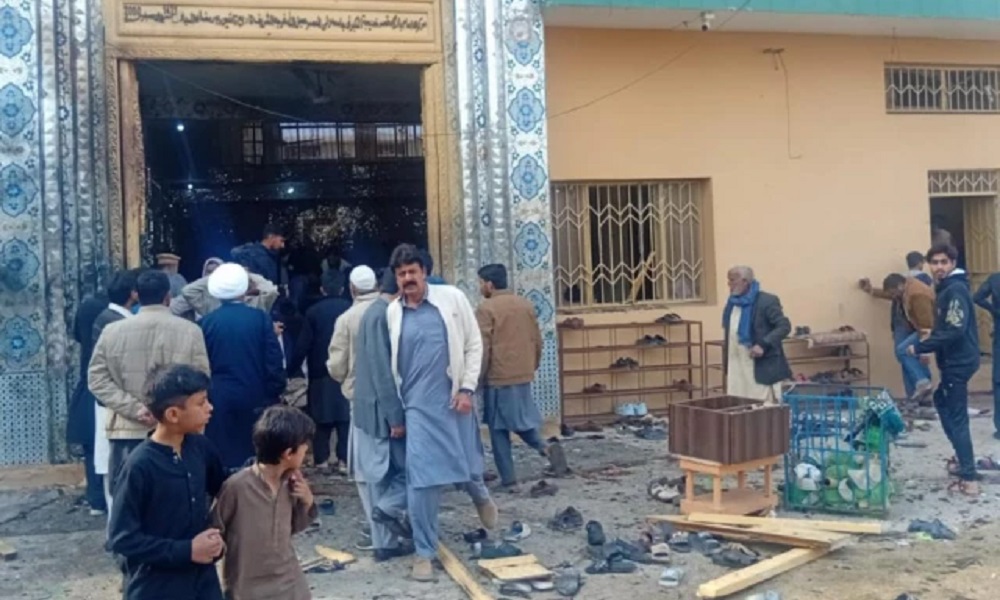
A suicide bomber killed at least 31 people and wounded nearly 170 others during Friday prayers at a Shi’ite Muslim mosque in Pakistan’s capital, Islamabad, Reuters reported, citing police and government officials.
Images from the site showed bloodied bodies lying on the carpeted mosque floor surrounded by shards of glass, debris and panicked worshippers.
Dozens more wounded were lying in the gardens of the Khadija Tul Kubra Imambargah, in a semi-urban area on the outskirts of Islamabad, as people called for help.
Bombings are rare in the heavily guarded capital, although Pakistan has been hit by a rising wave of militancy in the past few years.
“The death toll in the blast has risen. A total of 31 people have lost their lives. The number of wounded brought to hospitals has risen to 169,” Deputy Commissioner Islamabad Irfan Memon said in a statement.
Two police officials said the attacker was stopped at the gate of the mosque before detonating the bomb. They asked not to be identified as they were not authorized to speak to the media.
Latest News
Central Asian leaders are urging Pakistan to improve Afghanistan policies, says Khalilzad
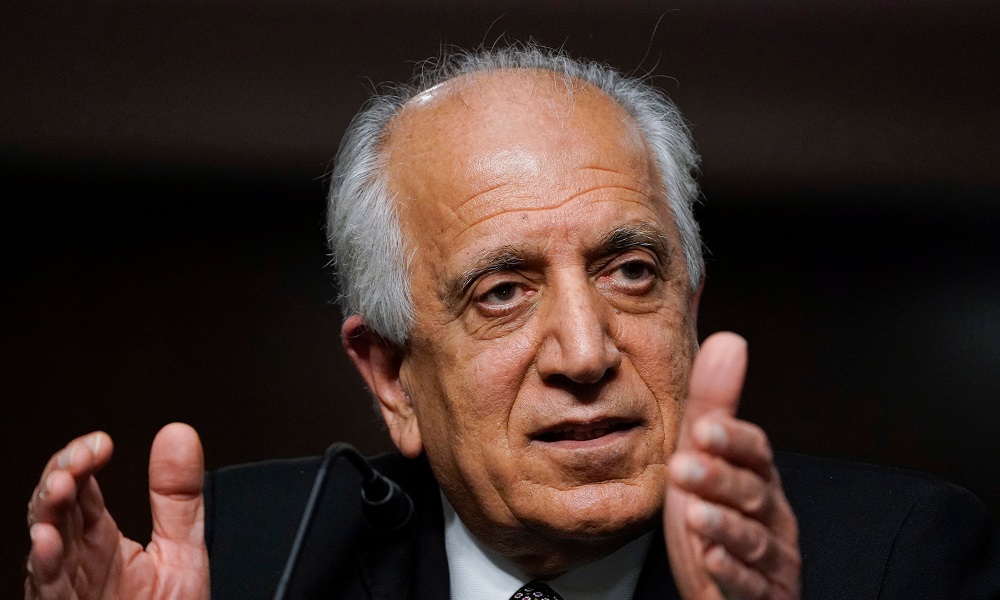
Former U.S. envoy Zalmay Khalilzad has highlighted the strategic importance of Pakistan’s relationship with Afghanistan, noting that visiting Central Asian leaders are likely encouraging Islamabad to strengthen its policies toward Kabul.
In a post on X, Khalilzad emphasized that Central Asian nations have a strategic interest in access to Pakistan and beyond, including the sea, to support their trade and connectivity projects. He pointed out that these countries are particularly focused on developing railways, pipelines, telecommunications, and electricity networks linking Central Asia and Pakistan—a move he said would also serve Pakistan’s interests.
“Of course, Afghanistan’s role is vital to the goal of regional connectivity and development,” Khalilzad said. “Stability in Afghanistan and good Pakistan/Afghanistan relations are the absolute prerequisite.”
He suggested that the Central Asian leaders visiting Islamabad are urging improvements in Pakistan’s Afghanistan policies and expressed hope that Pakistani authorities would listen to these recommendations.
Pakistani officials have repeatedly claimed that Afghanistan-based militants have carried out recent attacks in Pakistan. Kabul denied the charge, saying it could not be held responsible for security inside Pakistan.
Trade between the two countries remains suspended following a deadly clash near the Durand Line in October.
-

 Sport4 days ago
Sport4 days agoAFC Futsal Asian Cup 2026: Final eight confirmed
-

 Sport4 days ago
Sport4 days agoAfghanistan in new kit for T20 World Cup warm-up against Scotland
-

 Sport3 days ago
Sport3 days agoJapan trumps Afghanistan 6-0 in AFC Futsal Asian Cup quarter-final
-

 Sport2 days ago
Sport2 days agoHosts and heavyweights advance as AFC Futsal Asian Cup reaches semifinals
-

 International Sports4 days ago
International Sports4 days agoPakistan to boycott T20 World Cup group match against India
-

 Sport4 days ago
Sport4 days agoAfghanistan crush Scotland in ICC T20 World Cup warm-up
-

 Latest News1 day ago
Latest News1 day agoTerrorist threat in Afghanistan must be taken seriously, China tells UNSC
-

 Latest News2 days ago
Latest News2 days agoUzbekistan, Pakistan advance Trans-Afghan railway project


